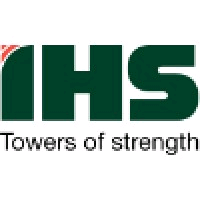IHS Holding Limited, a leader in shared telecommunications infrastructure worldwide, has completed a strategic divestment that was first announced in May 2025 by selling its Rwandan subsidiary, IHS Rwanda Limited, to Paradigm Tower Ventures for $274.5 million.
100 per cent of IHS Rwanda’s operations, including roughly 1,467 telecom tower locations, will be transferred as part of the deal.
In cooperation with a group of development-focused investors, including the French development finance organisation PROPARCO, British International Investment (BII), and Convergence Partners Digital Infrastructure Fund (CPDIF), the acquisition was carried out through Paradigm’s investment vehicle, Paradigm Infrastructure Holdings (PIH).
Component of IHS Towers’ larger portfolio optimisation strategy
The sale is a component of IHS Towers’ larger portfolio optimisation strategy, which focuses on high-growth markets and streamlines operations in an effort to increase shareholder value. JPMorgan served as IHS’s financial advisor for the deal.
Sam Darwish, Chairman and CEO of IHS Towers, said: “This agreement was carefully considered as part of our strategic initiatives to create shareholder value. It also highlights the intrinsic value of our Rwandan operations within our broader portfolio.”
Significance of Rwanda to Paradigm Tower Ventures
Rwanda is seen as a high-potential growth market by Paradigm Tower Ventures, a company that specialises in telecom infrastructure in emerging markets, due to the growing demand for shared wireless infrastructure.
Stephen Harris, Co-founder of Paradigm, said: “The Paradigm team is excited to build a customer-centric business that delivers secure, high-quality infrastructure to mobile network operators in Rwanda.”
Significance of the deal
The deal gives Africa’s quickly changing digital infrastructure scene more impetus. Initiatives to increase mobile connectivity and data access in underserved markets are being supported by development finance-backed investors like BII and PROPARCO, who are becoming more active in the area.
In addition to helping IHS reduce its debt and reallocate capital, the divestment represents a strategic shift toward larger, more scalable markets throughout Africa, Latin America, and the Middle East.
















